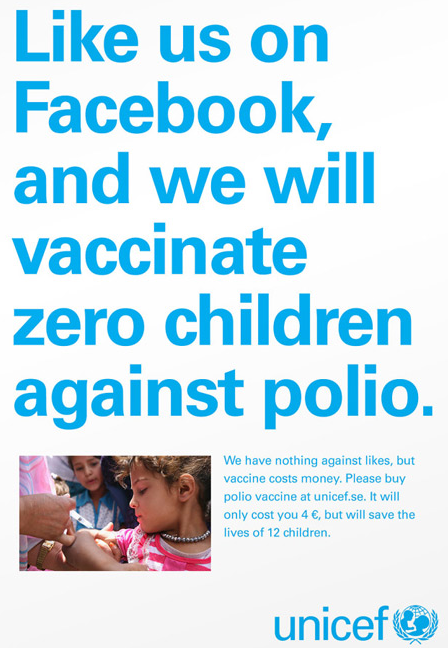When it comes to marketing a nonprofit organization, the strategies and tactics can be pretty different from standard small business marketing. Marketing's super important for all businesses, but it's even more vital for nonprofits.
With all the marketing tricks, tools, and advice out there, it can be hard to figure out what will actually work for you and your nonprofit. But don't fret! We've got what you need to make your organization a marketing superstar.
The Four Ps: Nonprofit Edition
It's 2015 now, and we're talking about nonprofits here, so it's time to update the most basic of marketing curriculum: the four Ps. We all know the old principles, but what are the foundational points of effective nonprofit marketing today?
These four are the overarching aspects that any great nonprofit marketing strategy of today will incorporate, so keep them in mind when developing yours.
Purpose
It's no secret that today’s consumers are concerned with a lot more than just products and their features. This is huge for nonprofits because it leads to a lot of opportunity for partnerships (the 4th P!) with traditional businesses who want to add some more substance to their value offering.
Presence
Consumers today expect that brands are accessible and supportive, which is great for nonprofits because you can easily achieve this very cost effectively through social media.
Proximity
Similar to Presence, consumers expect brands to be whenever and wherever they are and to communicate meaningful messages.
Partnerships
Technology has opened tons of doors for potential partnerships that can help to extend your reach and tap into new markets without adding extra costs.
Strategies
Keep Your Niche Bite-Sized
We all wanna be able to serve the world or save the world, but there are some serious limitations that come with taking too broad of a stance with your nonprofit.
When it comes time to start marketing, you should aim to positions yourself in a bite-sized (because everyone knows 'fun-sized' isn’t really fun at all) and narrow niche.
There are a lot of benefits to occupying a smaller niche:
-
Because you specialize in such a narrow field, you can easily gain expert status because there's less competition here.
-
You can connect with your target market on a deeper level since more specialized niches tend to lead to more engaged and concentrated consumers.
-
When you isolate your nonprofit to one, small area, you separate yourself from any competition that occupies a different tiny niche or a more broad one.
-
Your mission, job, and day-to-day tasks become simplified and clarified because you're working toward one specific, defined goal instead of many.
Partner With Brands And Influencers
With consumers seeking much more meaningful ways to use their spending money, brands are looking to quickly fill that need by incorporating cause marketing and corporate social responsibility.
This creates a huge opportunity for nonprofits to partner up with influential brands for co-marketing initiatives. Several prominent nonprofit organizations have run super successful campaigns with large, influential brands.
-
Livestrong Foundation – a nonprofit focused on supporting those diagnosed with cancer and their families – has had a long standing partnership with Nike.
-
A collection of Nike products are designated as 'Livestrong' products (often branded with Livestrong yellow). A portion of the proceeds from this collection goes directly to Livestrong.
-
Charity: water has partnered with TOMS to develop a line of limited edition charity: water sunglasses and shoes.
-
The ASPCA famously partnered with singer Sarah McLachlan, who's featured in many of their advertising campaigns.
Get Out And About
Getting out and networking is a huge asset for businesses of just about any kind. It's even bigger for nonprofits since your marketing budget is probably smaller than for-profit companies.
Attending events, taking on speaking gigs, and networking in general are awesome ways to ensure that people know who you are and that your organization is always top-of-mind. You can find events and meetups through Meetup.com, your local Chamber of Commerce, and Nonprofit Quarterly.
Content – Tell Your Story
It's no secret that content marketing is a huge buzz word throughout the marketing sphere right now. Content has principal benefits for marketing just about any kind of business, but once again, it's even better suited to the nonprofit sector.
Content is only going to get bigger in the coming years, so now is definitely the time to hop on. It's awesome for nonprofits because, while other businesses can implement it, nonprofit marketing is all about storytelling, and it always has been.
The best content strategy is multidimensional. You want to tell your story through a variety of media – create a blog, post to Facebook and Twitter, upload videos to YouTube, etc.
Your message should be everywhere, but there's no cookie-cutter formula. Make sure to format the story to fit each place it will be posted.
Social and Viral
A large part of your content strategy should focus on social and viral marketing. The best part about social media is that it's free – perfect for a nonprofit-sized budget!
While there's no formula for the perfect viral content, several nonprofit organizations have had wildly successful video campaigns like Invisible Children's Kony 2012 and The ALS Association's Ice Bucket Challenge.
You can also use social as a means of facilitating word of mouth. Many nonprofits encourage donors and volunteers to post a variation of 'I just donated to [blank] charity! Check them out: link' to their social media outlets.
People naturally want others to know about the good they're doing, so approaches like this are foolproof.
Rock The Inbox
Email marketing might just be the most important tool in a nonprofit's belt. It's how you keep subscribers up to date and how you convert interested prospects into engaged donors and volunteers.
By the time someone is receiving your marketing emails, you already know they're at least somewhat interested. They signed up, right? Now your job is to keep them interested and engaged.
One key to keeping them around is to diversify the content of your marketing emails. A weekly newsletter with the same format every week can get hum-drum pretty quickly, so it's important to vary what you're sending.
Some things you can include in your marketing emails:
-
Info about events
-
Special offers
-
Surveys
-
Thank you messages, and
-
A follow-up if someone interacts with your website or customer service
Tools
Lots of email marketing tools are available to help you out. Many of them are either free or offer discounts to nonprofits organizations!
Mobile
Mobile's a big shift right now, and you really can't afford to miss the boat on this one. Last year, mobile officially overtook desktop with users accessing via mobile around 60% of the time.
The first, and most important, step is to mobile optimize your main website. If you're using a web building platform – like Wordpress, Squarespace, or Wix – mobile optimization is really as simple as checking a box or choosing a pre-mobile optimized theme.
Another crucial step is to make your fundraising and marketing emails mobile-friendly. That means über readable and clickable. There are some simple formatting changes you can make to accomplish this.
-
Use one-column formats
-
Employ large, super easy to read fonts
-
Keep it simple and brief
-
Keep sentences and subject lines short and simple
One thing to avoid: While creating an app for your nonprofit may seem like the trendy thing to do, it’s a long, expensive road and there isn’t much return on investment for nonprofit apps.
Some Inspiration:
Water is Life
Water is Life turned the satirical #FirstWorldProblems on its head in their Hashtag Killer campaign.
Unicef
Unicef took a blunt approach to their social media following when they did the opposite of their nonprofit compatriots by not asking for Facebook likes.
END7
END7 took a new approach to the fear and shock appeals that many nonprofits have used in the past by providing a warning that also serves as a hook for some of the more graphic and disturbing imagery.
Amnesty International
Amnesty International designed a campaign that took raising awareness to a whole new level by bringing the horrors of developing countries right onto our own streets in their Not Here But Now campaign.

You're Officially Ready
Now that you've been educated and inspired, you're ready to take the world of nonprofit marketing by storm. So get to it and start making a difference!
What have you done to get the word out about your nonprofit?



